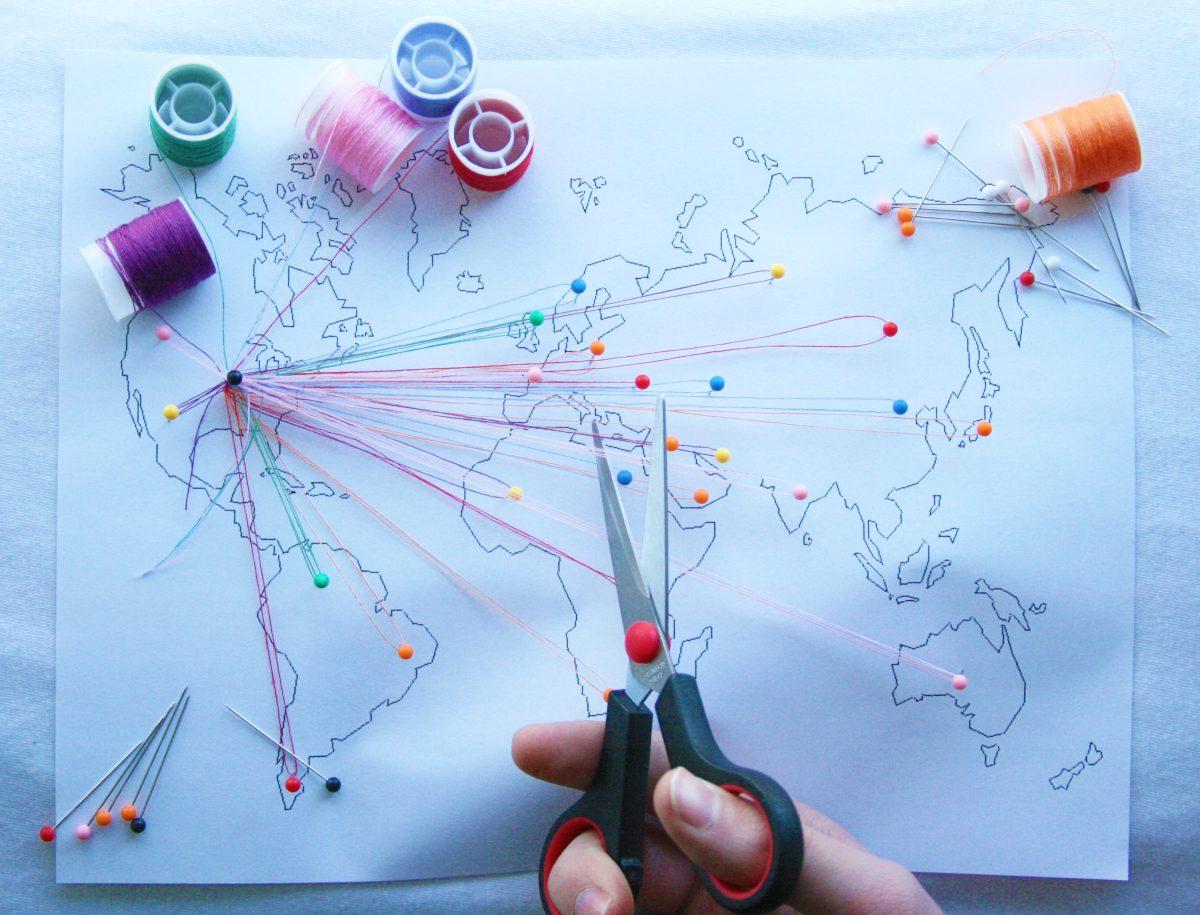Graphic by Lórien MacEnulty.
BY LÓRIEN MACENULTY
Drake University hosted 232 international students during the fall semester, according to Drake International Center.
A similar number are on campus this semester, and some are directly influenced by what is known as the immigration ban. The ban was enacted by President Donald Trump, although is has been recently suspended.
Other students and faculty indirectly affected agree that the ban was a harmful political move made by the Trump Administration.
Trump’s executive order, officially entitled “Protecting the Nation From Foreign Terrorist Entry Into the United States,” halted immigration from seven Middle Eastern nations for 90 days after Jan. 27, the day it was signed. This same order banned the acceptance of all refugees for 120 days and Syrian refugees indefinitely.
Its suspension began Feb. 4 and is still in effect.
The abrupt implementation of the order incited the suspension of the Visa Interview Waiver Program, forcing international Drake scholars, both home and abroad, to re-apply for return visas.
“We have many students that are not from this country,” said Kollin Crompton, strategic political communications and public relations major and self-identified Republican. “That affects all of us as students because those are the people that we go to school with. Those are our friends. Those are people we see each and every day. It bothers me a lot that some students are having to worry about, ‘Oh, I don’t know if I’m going to be able to go back home,’ or ‘If I do go home, I’m not going to be able to come back.’ I think that’s very sad, and that shouldn’t even be a thought that crosses their mind.”
The progressions in the welfare of international students prompted a public statement from President Marty Martin, reiterating that Drake will be “a place of refuge or safety — our chosen definition of sanctuary–for all of our students, faculty, and staff.”
Administration in recent weeks has compiled multiple resources and developed several strategies for traveling scholars who are experiencing uncertainty.
“I have deep concerns about both the humanitarian and security implications of this executive order,” said Debra Delaet, professor of political science. “This policy will prevent the entry of people who have already gone through extensive, thorough screening processes.”
Members of the Middle East Peace and Prosperity Alliance (MEPPA) on campus strongly objected to the immigration ban.
“MEPPA condemns President Trump’s immigration ban and recognize that more immigrants make the U.S. better,” said the group’s president, Elena Hildebrandt. “Moreover, MEPPA recognizes the blatant discrimination against the Muslim population, which will only create more issues in the Middle East and more extremism around the world.”
A self-proclaimed Democrat, Hildebrandt said that the policy, if upheld, will only increase extremism in the world instead of deterring it. Crompton agrees.
“The ban itself is really ineffective in solving terrorism because terrorism is an ideology,” Crompton said.
“Terrorism isn’t something that comes from a certain country,” Crompton continued. “It’s not like a product that is only grown in certain areas. It’s an ideology. It’s a mindset.”
The immigration ban, while a new idea to 21st Century Americans, is not unprecedented. Chinese immigrants in the 1880s experienced targeted immigration policies. The Immigration Act of 1924 provided visas to only two percent of the population of each country, while limiting visa access to certain areas of Southern and Eastern Europe and completely cutting off access to individuals from Asia.
“Notably, these restrictions were passed by Congress during periods in which nativist fears and a desire to protect a racial status quo played a prevailing role in immigration policy debates,” DeLaet said.
Organizations similar to MEPPA at Drake University seek to absolve these fears and by extent relinquish the desire for restrictive political measures.
“While many MEPPA members have acted as activists in a variety of ways, the group’s main goal continues to educate the community around us and advocate for human rights in both the Middle East and Middle Eastern immigrants and refugees,” Hildebrandt said.
A poll of 1,201 people conducted by Reuters found that roughly 31 percent of Americans feel the immigration ban will make them “more safe.” In contrast, 26 percent said they feel “less safe” as a result of the ban’s imposition.
“Iran has already indicated that it will adopt reciprocal measures in response to the immigration restrictions placed on its nationals,” DeLaet said. “I would expect other countries listed in the executive order to follow suit. As a result, the foreign policy implications of this executive order will create barriers to cooperation and diplomacy in an already-destabilized region.”
President Martin said in his campus-wide email that the best antidote to hostility is to affirm our collective values, extend kindness and be welcoming and inclusive.
“Immigrants built this country, and we are stronger together,” Hildebrandt said.
Other officials in the federal government seem to have similar ideas. The Department of Homeland Security suspended all actions pertaining to restricted access last Saturday. The Department of Justice will ultimately rule on the constitutionality of the ban.







